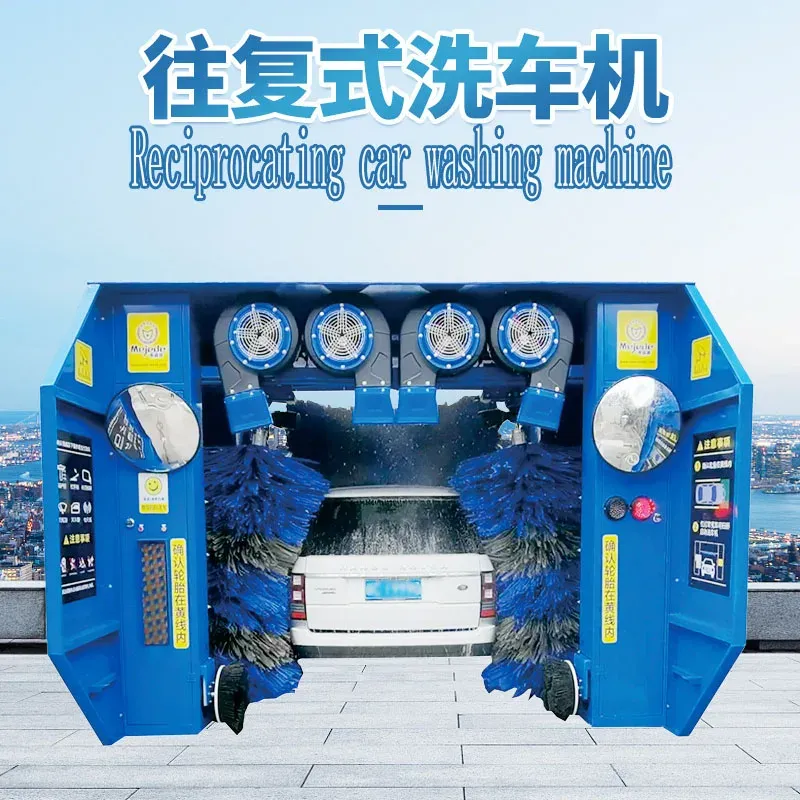touchless car wash system cost
The Cost of Touchless Car Wash Systems
In recent years, the automotive care industry has seen a significant shift towards touchless car wash systems. These innovative cleaning solutions offer numerous benefits compared to traditional washing methods, including reduced risk of scratches and swirls on the vehicle's surface, improved efficiency, and often, a more environmentally friendly approach. However, potential buyers often find themselves pondering the cost of implementing such a system. This article will explore the various factors that influence the cost of touchless car wash systems and provide insights into what potential investors might expect when considering this investment.
Initial Investment
The initial cost of purchasing and installing a touchless car wash system can vary widely, typically ranging from $25,000 to upwards of $150,000. The price largely depends on the size and type of the system. An entry-level model suitable for smaller operations or residential use may cost around $25,000, while larger, commercial-grade systems featuring advanced technology and capabilities can escalate quickly into six-figure sums.
A significant part of the initial investment comprises the equipment itself, including high-pressure pumps, automated systems, and specialized cleaning solutions. These systems are designed to effectively remove dirt, grime, and contaminants without the physical contact associated with traditional car wash methods, which can contribute to the longevity of the vehicle's finish.
Installation Costs
In addition to equipment costs, installation expenses must be taken into consideration. Depending on the complexity of the system and the site conditions, installation can add several thousand dollars to the total cost. Factors like electrical upgrades, plumbing modifications, and the need for specialized labor can further drive up expenses. It is essential to work with experienced professionals who specialize in car wash system installations to ensure everything is set up correctly and operates efficiently.
Operational Costs
touchless car wash system cost

Once a touchless car wash system is installed, operators must keep in mind the ongoing operational costs. These can include expenses related to water, electricity, and cleaning solutions. Touchless systems typically use less water than traditional car washes, which can lead to substantial savings over time. However, the quality of cleaning chemicals and their supply can become an ongoing cost that operators must manage.
Additionally, maintenance is crucial. Regular maintenance is necessary to keep the touchless system functioning optimally, which means budgeting for routine checks and repairs. The frequency and type of maintenance required can vary based on the brand and model, making it crucial for operators to understand the specific needs of their chosen system.
Return on Investment (ROI)
Understanding the cost of a touchless car wash system is not complete without considering the potential return on investment. Touchless car wash systems often attract customers looking for a gentle yet thorough cleaning option. This can lead to increased patronage, higher service costs per wash, and the ability to offer premium services that enhance profitability.
Moreover, many touchless car washes provide subscription models, allowing customers to pay a monthly fee for regular washes. This model not only ensures steady income but also fosters customer loyalty, as clients become accustomed to the convenience of a subscription service.
Environmental Considerations
Lastly, the cost of touchless car wash systems can also be viewed through the lens of environmental sustainability. Many consumers are becoming increasingly aware of the ecological impact of their choices, and touchless systems often use eco-friendly cleaning solutions and minimize water usage compared to traditional washes.
In conclusion, the cost of implementing a touchless car wash system encompasses various factors, including initial investment, installation charges, ongoing operational expenses, and potential returns. While the upfront costs may seem substantial, the long-term advantages—ranging from efficient cleaning processes to environmentally conscious practices—can make these systems a worthwhile addition for both commercial car wash operators and individual consumers. As the market continues to evolve, assessing the value proposition of touchless car wash systems will be critical in deciding the best approach to automotive care.




